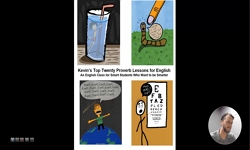This study is to point out problems with the North Korean entries, proverb and idioms in 《The Standard Korean Dictionary》. 《The Standard Korean Dictionary》 defines 'the North Korean language' as 'entries missing from existing South Korean di...
http://chineseinput.net/에서 pinyin(병음)방식으로 중국어를 변환할 수 있습니다.
변환된 중국어를 복사하여 사용하시면 됩니다.
- 中文 을 입력하시려면 zhongwen을 입력하시고 space를누르시면됩니다.
- 北京 을 입력하시려면 beijing을 입력하시고 space를 누르시면 됩니다.

《표준국어대사전》의 북한어 처리와 문제점 = How 《The Standard Korean Dictionary》 defines the North Korean words and the problem of it
한글로보기https://www.riss.kr/link?id=A76508909
- 저자
- 발행기관
- 학술지명
- 권호사항
-
발행연도
2005
-
작성언어
Korean
-
주제어
The North Korean language ; entries ; proverb ; idioms ; language marking rules ; North Korean language marking rules ; 북한어 ; 표제어 ; 속담 ; 관용구 ; 표기법 ; 북한식 표기
-
KDC
703
-
등재정보
KCI등재
-
자료형태
학술저널
- 발행기관 URL
-
수록면
145-171(27쪽)
- 제공처
-
0
상세조회 -
0
다운로드
부가정보
다국어 초록 (Multilingual Abstract)
However, many Chinese words and words concerned with custom have possibility of being included in the South Korean language, and many entries classified as the North Korean language is now being used as a technical terms in South Korea. Therefore, we need more careful and thorough classification. Also, the dictionary is explaining different language marking rules, for example 'ㅅ', between South Korea and North Korea as 'North Korean corresponding South Korean'. However, is technically, it should explain as 'North Korean language marking', but not the North Korean language because it's a problem of language marking rules.
Also, as for North Korean proverb and idioms, there are many proverb and idioms that are just slighty different in a way of suggesting method, so actually, they are hard to regard as different ones from South Korean proverb and idioms. For instance, 'a home left for a long time without person to take care of (South Korean saying)' and 'a house left without person to take care of (North Korean saying)' are not completely different proverb, but just a slightly different way of entering on the dictionary. In addition, I could find cases that some North Koreans are defined directly without corresponding South Korean word or explained as a part of North Korean saying or idiom, but actually those North Korean words are being used in South Korea too. 'Poverty breeds strife' is classified as North Korean language, but 'When poverty comes in at the door, love flies out of the window', 'Poverty breeds strife' are currently being used in South Korea, as well.
Like this, a number of North Korean entries, proverb and idioms in 《The Standard Korean Dictionary》 are classified as North Korean language without gong through a careful investigation on South Korean documents. As a result, the dictionary led to more confusion about the North Korean language. We need to examine documents more thoroughly and classify them as South Korean entries, proverb and idiom.
This study is to point out problems with the North Korean entries, proverb and idioms in 《The Standard Korean Dictionary》. 《The Standard Korean Dictionary》 defines 'the North Korean language' as 'entries missing from existing South Korean dictionaries among entries in North Korean 《The Chosun Language Dictionary》'.
However, many Chinese words and words concerned with custom have possibility of being included in the South Korean language, and many entries classified as the North Korean language is now being used as a technical terms in South Korea. Therefore, we need more careful and thorough classification. Also, the dictionary is explaining different language marking rules, for example 'ㅅ', between South Korea and North Korea as 'North Korean corresponding South Korean'. However, is technically, it should explain as 'North Korean language marking', but not the North Korean language because it's a problem of language marking rules.
Also, as for North Korean proverb and idioms, there are many proverb and idioms that are just slighty different in a way of suggesting method, so actually, they are hard to regard as different ones from South Korean proverb and idioms. For instance, 'a home left for a long time without person to take care of (South Korean saying)' and 'a house left without person to take care of (North Korean saying)' are not completely different proverb, but just a slightly different way of entering on the dictionary. In addition, I could find cases that some North Koreans are defined directly without corresponding South Korean word or explained as a part of North Korean saying or idiom, but actually those North Korean words are being used in South Korea too. 'Poverty breeds strife' is classified as North Korean language, but 'When poverty comes in at the door, love flies out of the window', 'Poverty breeds strife' are currently being used in South Korea, as well.
Like this, a number of North Korean entries, proverb and idioms in 《The Standard Korean Dictionary》 are classified as North Korean language without gong through a careful investigation on South Korean documents. As a result, the dictionary led to more confusion about the North Korean language. We need to examine documents more thoroughly and classify them as South Korean entries, proverb and idiom.
목차 (Table of Contents)
- 1. 머리말
- 2. 북한 표제어의 유형과 문제점
- 3. 북한 속담과 관용구
- 4. 맺음말
- 참고 문헌
- 1. 머리말
- 2. 북한 표제어의 유형과 문제점
- 3. 북한 속담과 관용구
- 4. 맺음말
- 참고 문헌
- ABSTRACT
동일학술지(권/호) 다른 논문
-
- 한국사전학회
- 편집부 (편집자)
- 2005
- KCI등재
-
한국어 이중언어사전 편찬을 위한 템플릿(Template) 제작에 대한 제안
- 한국사전학회
- 이상룡(Lee Sang-Yong)
- 2005
- KCI등재
-
- 한국사전학회
- 이희자(Lee Hee-Ja)
- 2005
- KCI등재
-
- 한국사전학회
- 이상규(Lee Sang-Gyu)
- 2005
- KCI등재




 DBpia
DBpia






